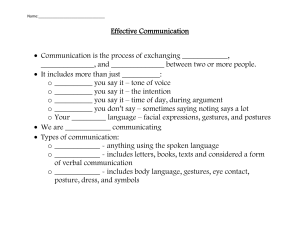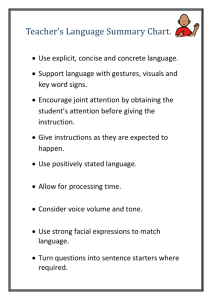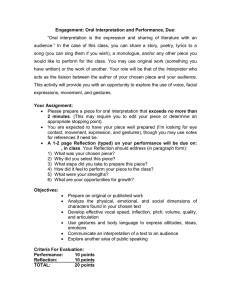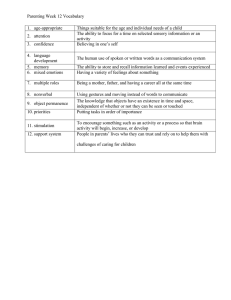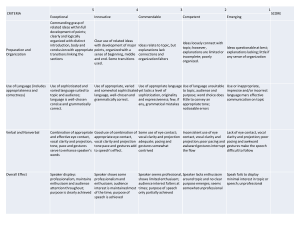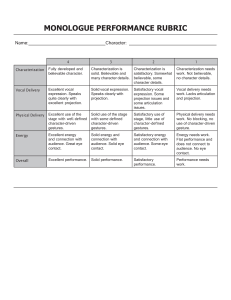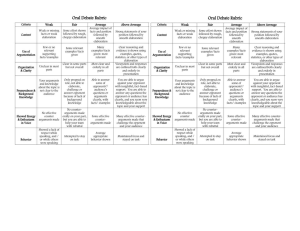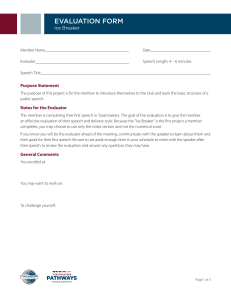E-1: Clearly present academic cont 1: Clearly present academic cont
advertisement
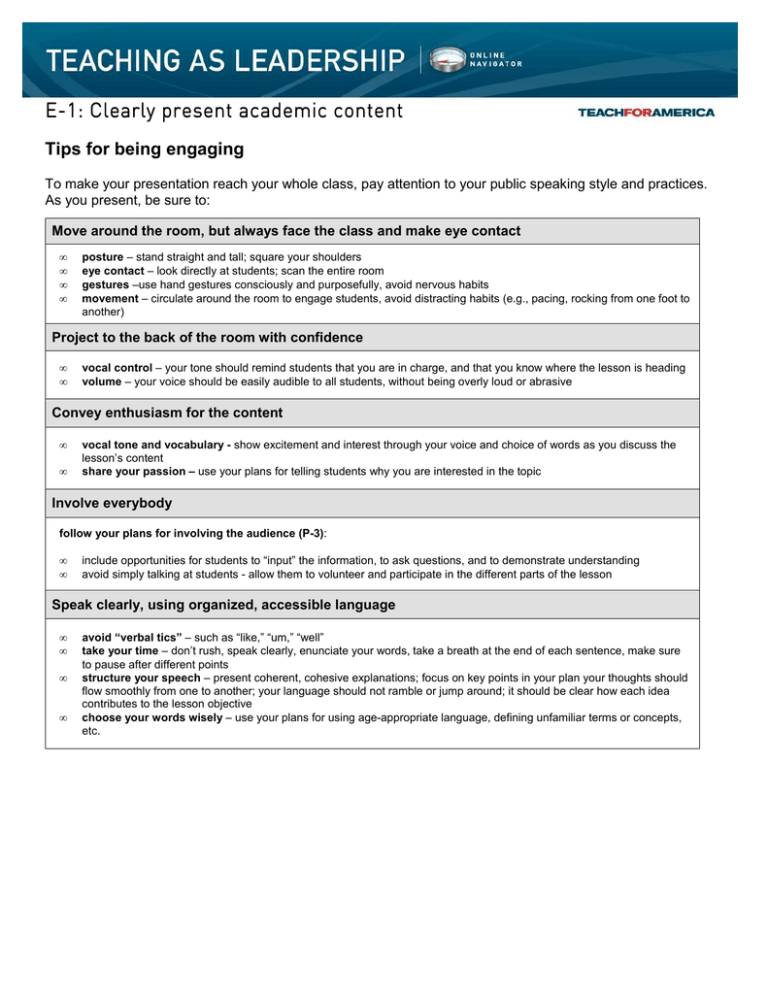
E-1: Clearly present academic content content Tips for being engaging To make your presentation reach your whole class, pay attention to your public speaking style and practices. As you present, be sure to: Move around the room, but always face the class and make eye contact • • • • posture – stand straight and tall; square your shoulders eye contact – look directly at students; scan the entire room gestures –use hand gestures consciously and purposefully, avoid nervous habits movement – circulate around the room to engage students, avoid distracting habits (e.g., pacing, rocking from one foot to another) Project to the back of the room with confidence • • vocal control – your tone should remind students that you are in charge, and that you know where the lesson is heading volume – your voice should be easily audible to all students, without being overly loud or abrasive Convey enthusiasm for the content • • vocal tone and vocabulary - show excitement and interest through your voice and choice of words as you discuss the lesson’s content share your passion – use your plans for telling students why you are interested in the topic Involve everybody follow your plans for involving the audience (P-3): • • include opportunities for students to “input” the information, to ask questions, and to demonstrate understanding avoid simply talking at students - allow them to volunteer and participate in the different parts of the lesson Speak clearly, using organized, accessible language • • • • avoid “verbal tics” – such as “like,” “um,” “well” take your time – don’t rush, speak clearly, enunciate your words, take a breath at the end of each sentence, make sure to pause after different points structure your speech – present coherent, cohesive explanations; focus on key points in your plan your thoughts should flow smoothly from one to another; your language should not ramble or jump around; it should be clear how each idea contributes to the lesson objective choose your words wisely – use your plans for using age-appropriate language, defining unfamiliar terms or concepts, etc.

